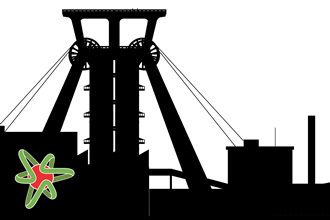Tackling memory distortion to improve process safety

Hindsight bias, when the outcome of an incident is known before examining the decisions leading up to it, is a common phenomenon that is preventing engineers from learning valuable lessons about process safety.
A new training offer, launched by the Institution of Chemical Engineers (IChemE) Safety Centre, has been designed to tackle the problem of hindsight bias. Using interactive video footage, the trainee is presented with various decisions as a process safety incident unfolds, without prior knowledge of the outcome.
Traditional process safety training typically involves the study of an incident, such as Fukushima or Buncefield, and then works backwards to see where mistakes were made. This makes it easy to make assumptions on the decisions leading up to an event and causes hindsight bias, which also prevents learning. IChemE’s new training format will provide users with a rare opportunity to make crucial safety decisions in a real-time setting, and see how those decisions impact on the outcome of the incident.
The ISC will launch three case studies at Hazards 26 in Edinburgh, Scotland later this month; Coal Mine, Gas Plant and Tank Farm. The Coal Mine case study focuses on simulating design, construction and commissioning decisions, while the others replicate operational decision-making scenarios, which would typically occur while on shift at these facilities. The case studies include a detailed explanation of how these facilities work, so no pre-knowledge is necessary.
The training aids have already received endorsements from chemical engineers in industry and academia. Professor Peter Ashman, Head of Chemical Engineering at University of Adelaide, Australia said: "These are great case studies of engineering decision-making under pressure."
Robert Wright, Safety, Security, Health and Environment (SSHE) Manager at PTT Exploration and Production said that the case studies were "a stimulating way of understanding process safety management. They worked well with the revelation that this was a real incident and it was simply explained."
Trish Kerin, Director of the ISC said: "This method of communicating a case study has never been done before. We have focused on beginning with the background detail, and then placing the audience as the decision-makers during key points in the case study. The consequence and actual incident the scenario is based on are not revealed until the end. This allows people to experience the context in which decisions are made, rather than focus on the actual decisions."
The case studies will be launched at Hazards 26, Europe's leading process safety conference held in Scotland on 24-26 May. However, those looking to purchase the case studies can access the pre-sale from today (Tuesday 17 May). They are available in USB format and contain video footage, group exercises, discussion points and detailed facilitator notes suitable for a 90-120 minute training session.
Similar articles
More from IChemE (the Institution of Chemical Engineers)
- Medals recognise volunteer commitment to chemical engineering 26th May 2016
- Loughborough engineering student wins prize for better beer 19th May 2016
- Tackling memory distortion to improve process safety 18th May 2016
- Penspen recognised for supporting engineering skills 12th May 2016












Write a comment
No comments